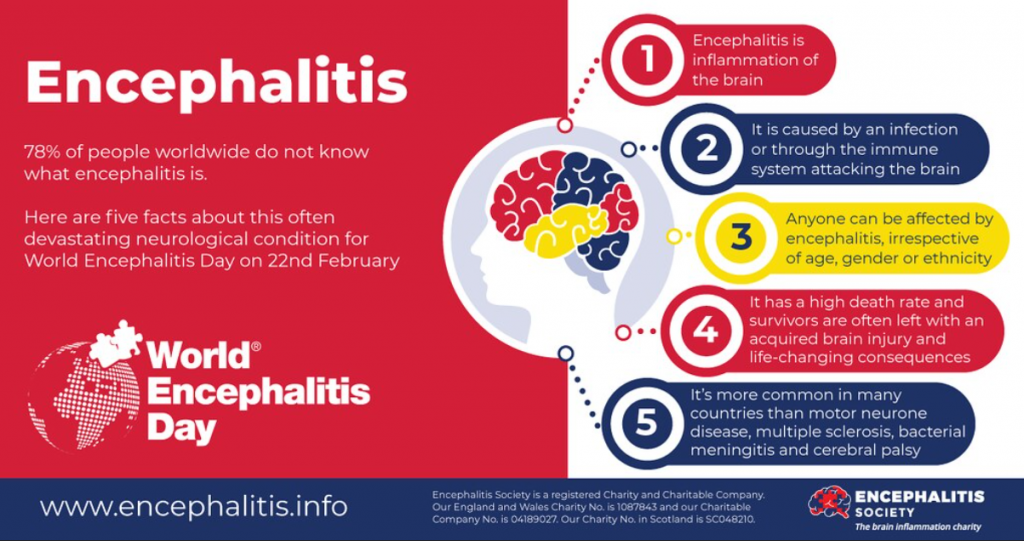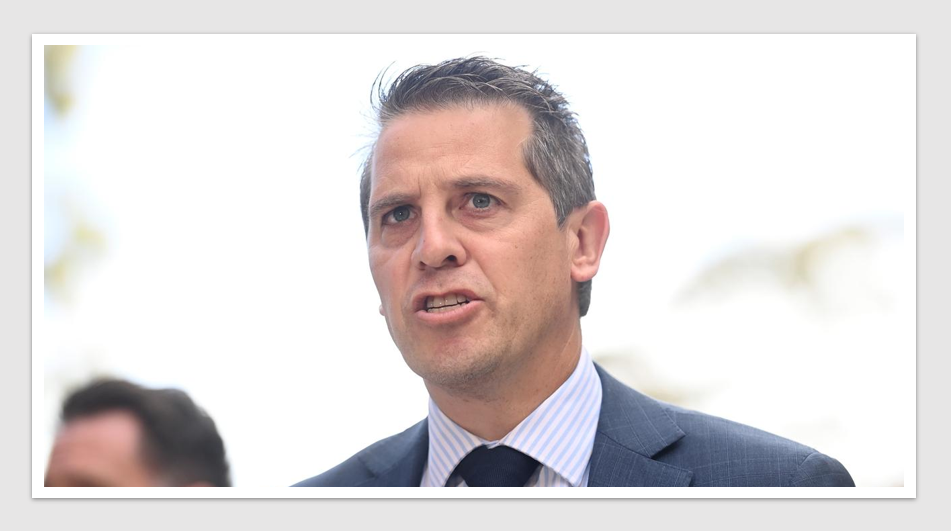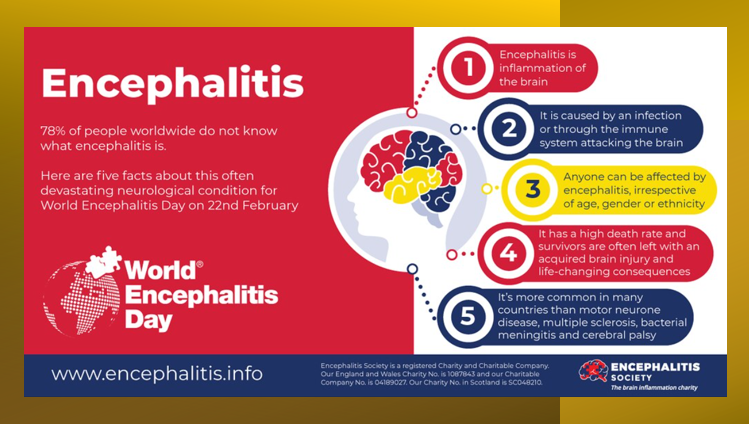ESG
Peak body warns of undoubtable link between COVID-19 and encephalitis
The peak global organisation for encephalitis, an inflammation of the brain that can lead to permanent brain injury, warns early coronavirus data is showing between 6 – 13% of people diagnosed with COVID-‐19 who develop neurological complications, will contract encephalitis.
Publishing correspondence in The Lancet Neurology to mark World Encephalitis Day today, Encephalitis Society Chief Executive, Dr Ava Easton, says at the start of the pandemic no one anticipated the numbers of people who would develop encephalitis as a direct result of COVID-19.
However, as more pandemic data and studies are being released, it has become increasingly evident that COVID-19 is leading to acute brain injury.
The warning comes as Australia’s COVID-19 vaccine roll-out commences, with Dr Easton urging all Australians to properly educate themselves on the benefits of vaccination.
“100 years ago the medical community struggled to disentangle potential associations between the influenza pandemic and encephalitis. Today the link between brain inflammation and SARS-CoV-2, the virus that causes COVID-19 is undoubtable.
“We are concerned the incidence of encephalitis will continue to rise and of equal concern are reports showing there’s a not an insignificant proportion of the public in countries around the world who say they will not, or probably will not, get vaccinated against COVID-19,” said Dr Easton.
“COVID‐19 is now a vaccine preventable disease and we’re strongly urging people to get the facts so they feel vaccine confident.”
Encephalitis can be life-threatening, killing up to 30% of those affected and leaving survivors with a legacy of difficulties. Typically caused by common viruses including the new coronavirus, flu, measles and herpes simplex (cold sore virus) encephalitis can also be caused by bacterial infection and autoimmune diseases.
However, since the beginning of the pandemic, Encephalitis Society has seen a 50 – 60% rise in demand for encephalitis services.
Joining calls to increase awareness of encephalitis is renowned ABC sports broadcaster, Karen Tighe, who was diagnosed with herpes simplex encephalitis in March 2020, following a reactivation of a dormant cold sore virus.
At the time of her diagnosis Karen was given a 30% chance of dying. Nearly one year later Karen continues to recover from her illnesses, has temporarily stepped down from her role as a broadcaster and is struggling to remember the names of famous sports stars that once so easily rolled off her tongue.
“The frustrating thing is I know their faces well and if you gave me a list of their names mixed in with others, I’d be able to match them. But without that assistance if you ask me to tell you who they are, I can’t. It’s like so many names are locked behind a big door in my brain which I can’t unlock,” Karen said.
Karen was hospitalised for two weeks with encephalitis and in the ensuing months lost a lot of weight, suffered ongoing nausea and hair loss, and spent several months unable to do more than walk to her local shops.
“Initially I couldn’t remember my husband or my son’s names and I had significant physical and mental effects from the encephalitis which have taken me more than nine months to overcome.
“In the middle of last year I was overcome by an overwhelming anxiety and fear of the dark and of being in my house even in the daytime by myself. For many days I would drop my son at school, spend time in the car and then head to a local café where I could feel safe in a place that had some other people in it,” said Karen.
“Although I’ve turned a big corner in the last two months and am finally getting out and about, I still struggle with recalling the names of many friends, colleagues, athletes, politicians and many descriptive words.
“While I may physically feel better and look normal, the injury to a part of the left hand side of my brain is still there and there isn’t anything I can do to speed up the brain recovery. I’ve now accepted that, which is a huge step forward,” Karen said.
Around 500,000 people globally are affected by encephalitis annually, equating to one person every minute. The illness leads to cognitive, physical or emotional difficulties including impaired memory, language problems, changes in decision making, planning and organisation, personality changes, anxiety, depression, mood swings, fatigue, weakness and epilepsy among others.
While the severity and symptoms of encephalitis can vary, they include flu-‐like illness, headache, drowsiness, uncharacteristic behaviour, inability to speak or control movement and seizures.
According to Dr Easton this year will see an extraordinary World Encephalitis Day, shining a unique light on a condition that in many countries has a higher incidence than multiple sclerosis, motor neurone disease, bacterial meningitis and cerebral palsy.
“Just one year on from the start of the pandemic, we will be reminded of all patients and the effect the pandemic has had on their lives,” said Dr Easton.
“There is nothing particularly unique about SARS-CoV-‐2 and encephalitis, but rather the large number of infected people globally, has made otherwise rare complications, worryingly frequent.
“Having reached more than 186 million people worldwide in seven years, this World Encephalitis Day is perhaps more important than ever before,” Dr Easton said.
World Encephalitis Day 2021 will be celebrated with a “Lights, Camera, Action” theme which will see iconic landmarks across the globe and throughout Australia, light up in red to increase awareness of encephalitis.
Joining Niagara Falls, North America, The Jet d’Eau, Geneva and the Danube Bridges, Vienna, will be Australian landmarks including: The National Carillon, Canberra, Federation Square and Melbourne Star, Melbourne, Optus Stadium, Council House and The Bell Tower, Perth, Adelaide Oval, Adelaide, The Story and Victoria Bridges, Reddacliff Place Sculptures, City Hall and King George Square, Brisbane.

News & Trends - MedTech & Diagnostics

Pathology reforms: Frozen fees, windfall gains, and the fight for bulk-billing
Diagnostics & MedTech News: For nearly a quarter-century, pathology fees have remained stagnant, a situation deemed patently unfair by Australian […]
MoreNews & Trends - Pharmaceuticals

Call for coordinated policy and cross jurisdiction funding in chronic disease
Pharma News: The life expectancy of Australians is still rising, however the increased prevalence of chronic conditions and co- and […]
MoreNews & Trends - MedTech & Diagnostics

Expansion of hospital services for patients in NSW Macarthur region
MedTech & Diagnostics News: Marking a historic milestone with NSW Deputy Premier Prue Car and Health Minister Ryan Park, Campbelltown […]
MoreNews & Trends - Biotechnology

Superiority of cell-based flu vaccine revealed in RWE study
Biotech News: Vaccines stand as the primary strategy to mitigate the considerable morbidity, mortality, and economic burden associated with influenza. […]
More
